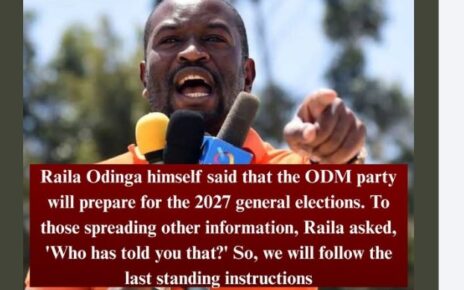President William Ruto has defended a large number of Kenyans who remain outside the tax bracket, saying their failure to pay taxes is not intentional but a result of inadequate government systems. Speaking during a public address, the Head of State emphasized that tax evasion in many cases is not deliberate, but a reflection of a system that has not made compliance easy, accessible, or practical for millions of citizens.
“There are people who don’t pay taxes. It is not their wish. It’s because we haven’t provided the right systems for them,” Ruto said, arguing that the government must take responsibility for the gaps that have existed for years.
According to the President, the majority of Kenyans in the informal sector want to comply with tax requirements but are held back by confusing processes, poor digital accessibility, lack of awareness, and outdated structures that do not accommodate small-scale earners. He acknowledged that the tax environment in Kenya often feels intimidating or punitive, especially for hustlers, small traders, and low-income workers.
Ruto assured citizens that his administration is rolling out new measures aimed at simplifying tax procedures, digitizing key services, and ensuring that every Kenyan—whether in formal or informal employment—can remit taxes in a transparent, convenient, and respectful manner.
“We are going to assist everybody to pay taxes, and we will do it with a lot of respect,” he said, stressing that tax collection should not involve threats, bullying, or government heavy-handedness.
The President reiterated that a fair and functional tax system is central to the country’s development and that Kenya can only achieve economic stability and independence if more people participate in revenue generation.
Ruto’s remarks come at a time when discussions around tax reforms have intensified nationwide. Many business owners, traders, and youth have been expressing concerns about the expanding tax proposals, particularly those targeting digital services, small businesses, and agricultural income.
By acknowledging systemic failures and promising respectful engagement, the President appears to be seeking a more collaborative relationship with taxpayers—one that emphasizes partnership instead of confrontation.
Analysts say the success of this approach will depend on how quickly and effectively the government transforms the Kenya Revenue Authority’s systems, educates citizens, and builds trust through fairness and consistency.
For now, Ruto maintains that no Kenyan should be criminalized for not paying taxes when the government itself has not made compliance possible, adding that the new reforms are intended to support, not burden, ordinary citizens.



